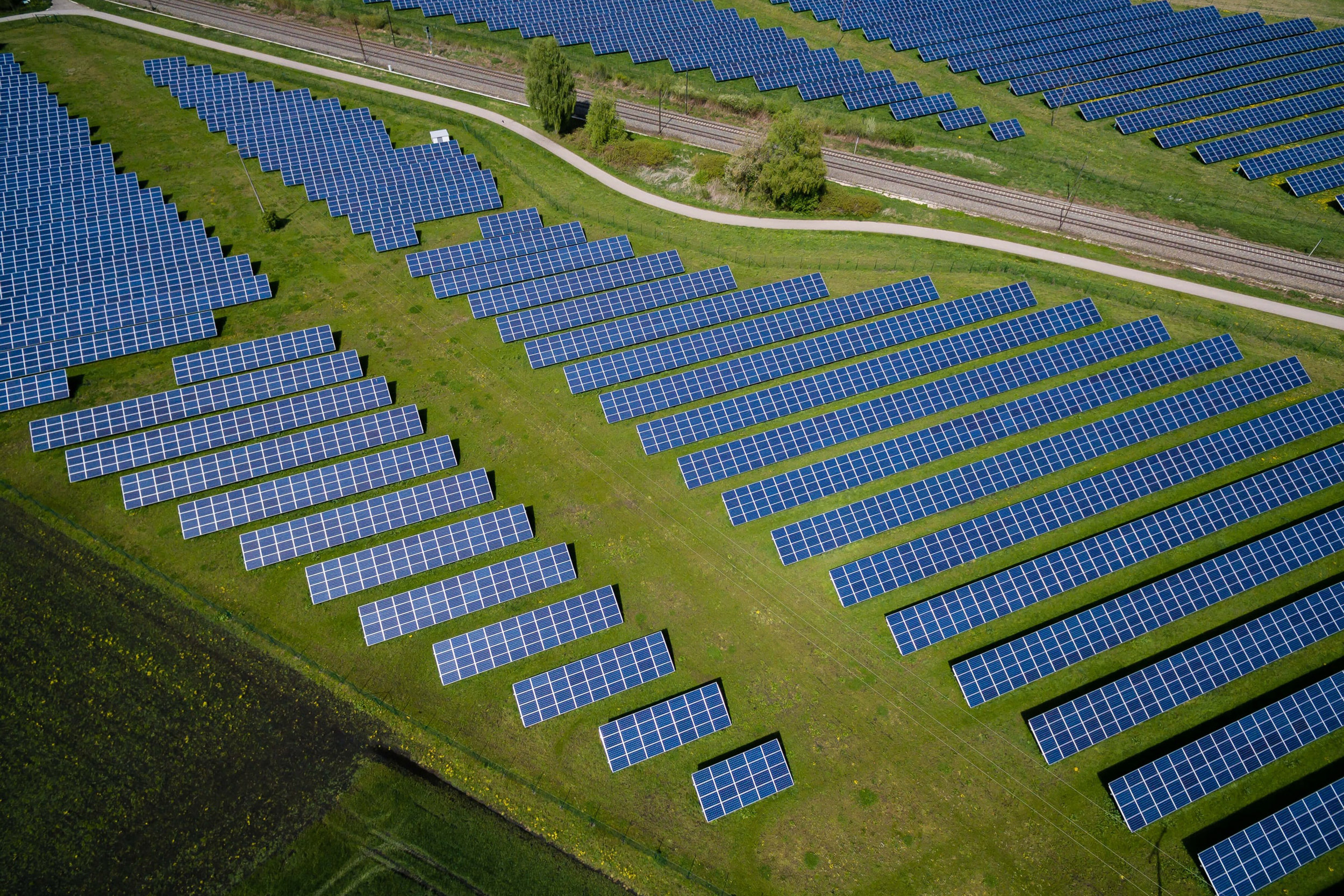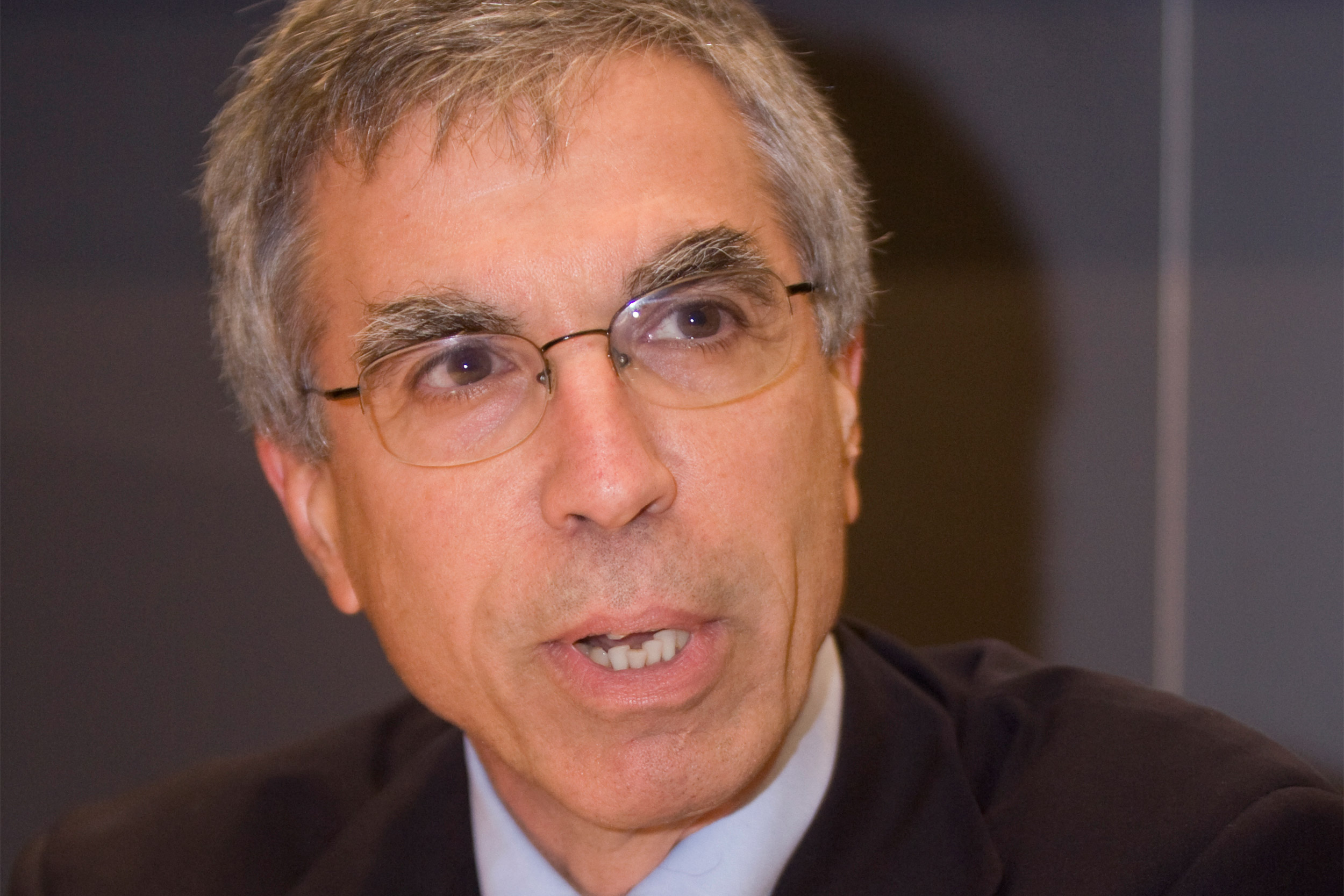
Andreas Gucklhorn/Unsplash
So how much change can Biden bring on climate change?
Analysts see reversals of Trump changes, more global leadership, political hurdles
When Democratic President-elect Joe Biden steps into the White House in January, he and Vice President-elect Kamala Harris will be taking over from a Republican administration that for the past four years has denied evidence of climate change and dismantled environmental protections.
The road back won’t be easy. Biden, who made the environment a cornerstone of his campaign, will have difficulty making major legislative changes. Democrats have only a small advantage in the House, and the balance in the Senate will be decided by a January runoff for two seats from Georgia, the results of which will leave the winning party with the only barest of majorities.
Still, Harvard experts in climate and the environment say much can be done, but the question is: How much? They do expect the incoming administration will be able to set some measures in place to establish and reestablish key pillars in the fight against a warming Earth, a good deal of which can be done unilaterally through executive orders and federal agency regulations. The White House will also clearly have it within its power to reassert U.S. international leadership on the issue and take meaningful action toward global decarbonization.
“The Trump administration rescinded or weakened every climate rule and many environmental rules from the Obama administration, and the Biden administration will replace those rules and strengthen them. Trump called climate change a ‘hoax,’ whereas Biden has called it a crisis and existential threat. Trump has sought to prop up the coal industry, while Biden has pledged to accelerate a clean-energy transition,” said Jody Freeman, the Archibald Cox Professor of Law and director of Harvard Law School’s Environmental Law Program.
Biden ran on the most ambitious climate plan of any major party nominee. His campaign proposed a $2 trillion plan and sets goals of net-zero carbon emissions by 2050. These goals fall in line with long-term goals of other major economies such as China or across Europe.
“It’s a big goal,” Freeman said. “But climate change is proceeding more rapidly and posing greater risks than scientists originally anticipated, and small steps will not be enough to stave off the worst consequences.”
First steps of the new administration will almost certainly include rejoining the Paris Climate Agreement, investing more in green energy and infrastructure, and directing the Environmental Protection Agency and others to restore rules the Trump administration rescinded, like those protecting federal lands from drilling or ones on motor vehicle standards. On Monday, Biden named former secretary of state and U.S. senator John Kerry a climate envoy, in the newly created post based on the National Security Council.
“Climate change is proceeding more rapidly and posing greater risks than scientists originally anticipated, and small steps will not be enough to stave off the worst consequences,” said Jody Freeman, director of Harvard Law School’s Environmental Law Program.
File photo by Ann Wang

These actions will be a welcome start, but the question looming for Daniel Schrag is: How much can actually get done, especially if Democrats don’t control the Senate? Even if they control it via a tie-breaker, it could still be tricky, said Schrag, the Sturgis Hooper Professor of Geology, professor of environmental sciences and engineering, and head of the Harvard University Center for the Environment.
“There are enough Democrats reticent on serious climate action, like Joe Manchin from West Virginia, that I don’t think we should expect broad, sweeping climate legislation in the next four years,” he said.
If Republicans do retain Senate control, it sets up even larger questions about the road of comprise or executive action.
“The big question is whether they’re going to try to move forward with aggressive executive action, which is going to alienate a Republican Congress, or are they going to be more cautious and try to see if they could get something through,” Schrag said. “If Republicans win the majority in the Senate, I suspect that Mitch McConnell will not cooperate with anything on climate change and therefore, unfortunately, executive action may be the only path. I’d love to be wrong about that.”
Still, Schrag sees hope, especially since there is a rapidly growing market for cheap clean energy.
Robert Stavins, the A.J. Meyer Professor of Energy and Economic Development and director of the Harvard Project on Climate Agreements, sees possibilities for bipartisan climate legislation, though it’s unlikely to match the ambition of climate advocates at home or international calls for action.
“The key approaches here might involve tax incentives [and subsidies],” Stavins wrote on his blog. “This may fit well with President-elect Biden’s moderate approach to governing and his stated desire to work with both parties in Congress. Specific bipartisan options could include policies targeting wind and solar power, carbon capture and storage/utilization, and technology initiatives, possibly via the government laboratories.”
Another candidate could be a future infrastructure bill, which is something both parties seem to recognize is important, Stavins said. “This could include funding for improvements in the national electricity grid, which will be necessary to facilitate greater reliance on renewable sources of electricity generation.”
“The key approaches here might involve tax incentives [and subsidies],” pointed out Robert Stavins, director of the Harvard Project on Climate Agreements.
Jon Chase/Harvard file photo

When it comes to regulatory approaches, Stavins expects the Biden administration to announce orders reversing rollbacks on new oil and gas leasing on federal lands, possibly blocking the Keystone XL pipeline; reversing Trump-era lowering of the Social Cost of Carbon, an estimate regulators use in determining limits on greenhouse gas emissions; and moving to reinstate or expand on President Barack Obama’s Corporate Average Fuel Economy standards. Biden could also instruct the EPA to reverse the Trump administration’s attempts to deny California its waiver under the Clean Air Act, which seeks to put in place more stringent air-quality regulations than are required under federal law.
These moves don’t come without potential drawbacks, however.
“The real challenge to the regulatory approach is that new regulations are much more likely to be successfully challenged in federal courts in 2021 than they were during the Obama years,” Stavins wrote on his blog. “This is partly because there are now more than 200 Trump-appointed federal judges. But more importantly, the Supreme Court now has a 6-3 conservative majority, which is very likely to favor literal reading of statutes, giving executive departments and agencies much less flexibility to go beyond the letter of the law or to interpret it in new ‘innovative ways.’”
Reasons like this are why one of Michael McElroy’s biggest hopes for a Biden/Harris administration is a return to vigorous, educated debate on the issues.
“It isn’t easy to simply go from here to zero carbon in a couple of decades,” said the Gilbert Butler Professor of Environmental Studies and head of the Harvard China Project. “I would hope and look for a much more cooperative situation in Washington, where instead of the extreme rhetoric about climate change, you have an informed debate about the issue and the challenges.”
The same goes for the U.S. stepping back into the international scene. It begins with rejoining the Paris accord but can’t stop there, McElroy and others said. The U.S. has to follow up with actions.
Joseph Aldy was on theh Obama administration’s Climate 21 Project committee, which developed a 300-page blueprint for a government-wide climate response.
File photo by Brooks Canaday

“It involves beginning to interact with other major countries in discussing joint operations and joint opportunities,” McElroy said. “Clearly, China is the big player, but I would mention the importance of a cooperative relationship between the United States and India, in particular. Also, what are our responsibilities to poorer countries? Let’s take some of the African countries that have not had the advantage of using fossil fuels to fuel their development. Are we going to ask them to stay where they are or are we going to take some responsibility to help them make a transition to a to a new energy system that is more renewable?”
Professor of the practice of public policy Joseph Aldy agreed. Since climate change is a global problem, it’s going to take a global approach to combat it by the world’s major economies, he said. But those solutions have to start at home, and he believes all of government will need to get involved.
Aldy, who was a former special assistant to President Obama, sat on the steering committee for the Climate 21 Project — a 300-page blueprint for a government-wide climate response. He said it will all start with processes the incoming administration lays out and personnel they appoint.
“You need to use every lever throughout the federal government,” Aldy said. That includes making sure even agencies such as the Treasury or Defense Departments know they’re responsible for contributing to climate change policy. “It’s going to be critically important to make sure that people at the senior leadership in all the different departments are thinking about climate in everything they do and that they’re accountable to the president for delivering on his agenda.”
Freeman expects this, as well, she said. “That plan will be the basis for a new U.S. pledge for the Paris Agreement,” she said. She also notes the administration might succeed in adding significant clean energy investment to any COVID recovery package.
Standing over it all, analysts say, is making up for the lost time.
“It’s hard to say ‘made up’ since climate change is fundamentally different from other environmental problems,” Freeman said. “You can’t quite clean up the upper atmosphere like you can a local waterway, so four years of lost progress is real.”
She and others, including Peter Huybers, a Harvard professor of earth and planetary sciences and of environmental science and engineering, remain hopeful, however.
“Our nation’s experience with COVID-19 should be a warning,” Huybers said. “If we withdraw from international cooperation, ignore the science, and shortchange America’s capacity to reinvent, we’ll bring needless suffering upon ourselves.”






